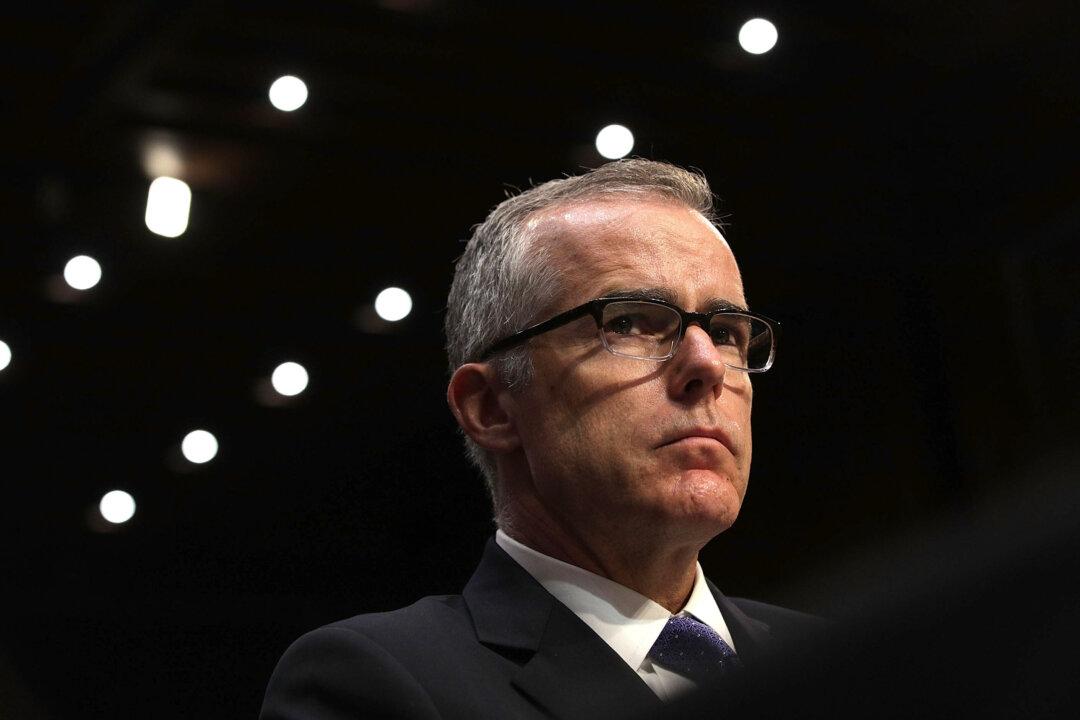Andrew McCabe resigned from his position as deputy director of the FBI on Jan. 29, just hours before the Senate approved the release of a memo that allegedly shows the FBI using its powers for political motives that protected Hillary Clinton and sought to undermine President Donald Trump.
The shakeup at the top of the FBI is being framed by some politicians and legacy news outlets as an attack on the agency itself, with former Attorney General Eric Holder stating on Twitter that “Bogus attacks on the FBI and DOJ [Department of Justice] to distract attention from a legitimate criminal inquiry does long term, unnecessary damage to these foundations of our government.”





